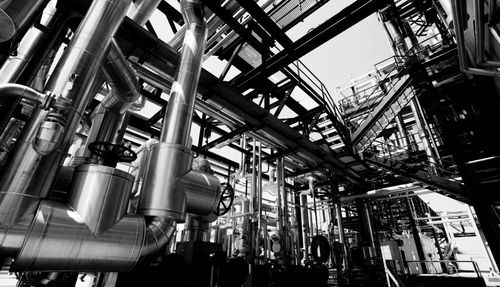INERATEC, a German e-fuel company, has raised over $129m in its Series B funding round, led by Piva Capital with additional participation from HG Ventures, TDK Ventures, Copec WIND Ventures, RockCreek, Emerald, Samsung Ventures as well as the increased support from current investors, including global corporates like ENGIE New Ventures, Safran Corporate Ventures and Honda.
“This financing round is a major milestone for INERATEC as well as the transition from fossil fuels to sustainable e-Fuels,” said Tim Boeltken, CEO of INERATEC. “With the new capital, we are positioned to catalyze a paradigm shift in the energy sector. Our focus is to scale-up e-Fuels enabled by this new investment. By transforming 1GW of renewable energy into 125 million gallons of sustainable e-Fuel by 2030, we are taking solid steps in creating a viable alternative to fossil fuels.”
INERATEC’s technological advancement is a scalable patented technology that enables the production of ‘drop-in’ e-Fuels. The process involves two main steps: first, turning CO2 and hydrogen into synthesis gas, then using a second reactor to turn the synthesis gas into liquid and solid hydrocarbons. The e-Fuels are compliant with standards targeted for industries heavily relying on fossil fuels, such as aviation, shipping, road transport, and the chemical industry.
Since it was founded in 2016, INERATEC has built and operated numerous pilot plants and is engaged with over 30 customers in the respective fields of application. Additionally, the company has been recognized with several key awards, including the German Founders Award, the Next Economy Award, and the EARTO Award and was recently selected as Top Innovator by UpLink, the Innovation platform of the World Economic Forum.
The new capital will be used to start the mass production of INERATEC’s industrial-scale Power-to-X plants worldwide and advance the production of e-Fuels made from recycled CO2 and renewable energy. Additionally, INERATEC has begun construction of its largest plant to date in Frankfurt and is expanding through international projects in the Netherlands and Chile. This expansion will yield a 1,500 x increase in production, recycling over 12,000,000 metric tons of CO2 annually – the equivalent of what 1,125,000,000 trees would store. Beyond that, the technology will be implemented globally – wherever CO2 and renewable energy are available.






